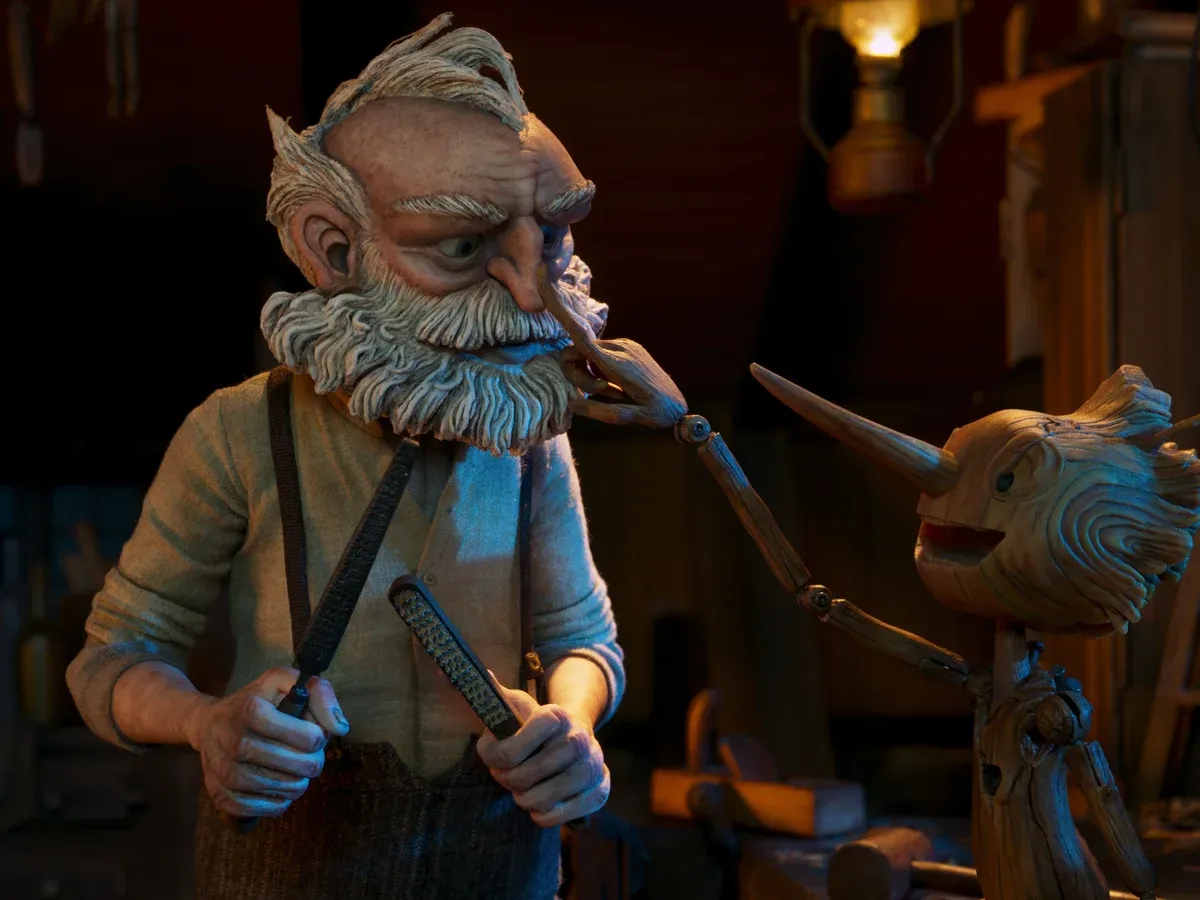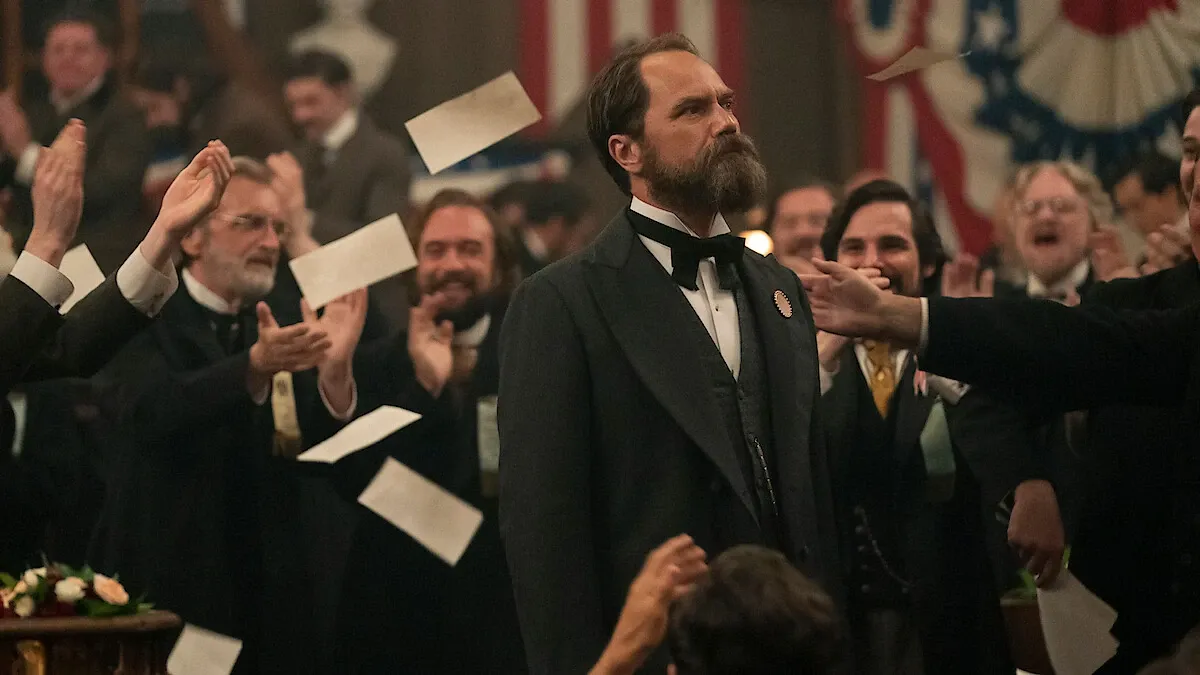It’s always a gamble, naming something after yourself. The act implies ownership. Something so total, that it takes its place as the definitive telling of something in popular culture. As the name suggests, this is Guillermo Del Toro’s film, and it is the definitive take on Pinocchio.
Set in Fascist Italy, during Mussolini’s reign, as his goose-stepping thugs hold the country under their boot. A cheerful artisan, Geppetto, lives far away from the war with his son, happy to ignore the horror casually spreading towards their home. One night, a rogue air raid strikes, killing Geppetto’s child. Inconsolable, he takes to drink, and seasons pass. Then, fuelled by rage, desperation, and grief, Geppetto carves a wooden boy to remind himself of what was once lost.
Fate intervenes, and Pinocchio, the wooden boy without a soul, comes to life. He is accompanied by a talking cricket, and the promise that should he bring real happiness into the world, he will one day become a real boy. But in a world consumed by war and fascism, is such a thing as happiness even a possibility?
Meticulously crafted in stop-motion animation, Pinocchio is one of the most beautiful films ever made. Every rich frame is worthy of closer inspection. It’s a work of talented artists working with the vision of a filmmaker who continues to surprise and delight with every film they make.
Here, Del Toro crafts a companion piece to his other masterpiece, Pan’s Labyrinth. Both are stories of fanaticism, fascism, and cruelty as seen through children’s eyes. They embrace their origins as fables, allowing for magic to exist in our realm without anyone batting an eye. People understand animals, nature has a mind of its own, and even death is another obstacle on a never-ending journey that no one has seen to the end.
Smartly, Del Toro never shies away from making his feelings about goose-stepping thugs clear. There isn’t a single moment that Pinocchio doesn’t mock fascist shitheels and their degenerate worldview. Mussolini is a pint-sized prick, spellbound by his image. Soldiers happily throw themselves at bullets in the hopes their superiors will notice them.
Where Del Toro never laughs, however, is how this affects the innocent. Fathers coldly force their children into military service. Adults take advantage of the weak without mercy. As time passes and Pinocchio grows, the world becomes a colder, more unforgiving place. The miracle, Del Toro suggests, is whenever anyone can remain a kind and empathetic person in the face of the horror that life can be.
Pinocchio is a spellbinding, masterful film, worthy of all the praise it receives. It might not be for the youngest viewers – certain moments will surely chill even adults – but it is necessary viewing for all ages. Like the greatest stories we tell, Del Toro’s Pinocchio timelessly understands the world. It captures the heartache and pain, the beauty and joy, and the profound miracle of living. It is the best film Del Toro has made to date.













